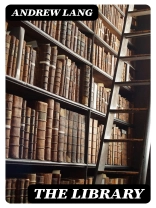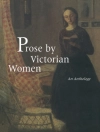In ‘The Library, ‘ Andrew Lang presents a meticulous exploration of the evolution of libraries, ranging from ancient archives to modern establishments. With a narrative style that seamlessly blends historical analysis with rich anecdotal evidence, Lang paints a vivid portrait of libraries as pivotal crucibles of knowledge, culture, and social interaction. The work is situated within the late 19th-century context of growing public awareness on the importance of education and literacy, reflecting contemporary debates about access to information and the democratization of knowledge. Lang employs a reflective yet accessible tone, making complex ideas appealing to a broad audience. Andrew Lang, a noted scholar, poet, and folklorist, was deeply invested in the preservation of cultural heritage, which undoubtedly influenced his commitment to exploring libraries in this work. His background in the study of myths and narratives equips him with a unique lens to appreciate the role libraries play in curating human thought and imagination. Having experienced firsthand the advent of public libraries, Lang’s insights carry the weight of someone who witnessed the transformative power of accessible literature. For readers interested in the intersection of literature, history, and culture, ‘The Library’ is an indispensable resource. It invites scholars, students, and casual readers alike to appreciate the underappreciated sanctuaries of knowledge that shape society. Lang’s eloquent prose and insightful commentary make this a timeless reflection on the significance of libraries in fostering community and literacy.
Sobre el autor
Andrew Lang (1844–1912) was a Scottish writer, critic, and contributor to the field of anthropology who is particularly famed for his work as a collector of folk and fairy tales. With a prodigious literary output, Lang distinguished himself not only as a folklorist but also as a poet, novelist, and historian. His scholarly acumen was evident in the breadth of topics he touched; however, it is for his vibrant fairy tale compilations that he is best remembered, especially ‘The Blue Fairy Book’ (1889), which was the first in a series culminating in ‘The Lilac Fairy Book’ (1910). His book ‘The Library’ (1881) represents another facet of his work, highlighting his keen interest in literature and bibliophil. An advocate of the higher criticism, Lang’s literary style is marked by a clear, engaging narrative voice, a sharp wit, and an evident respect for myth and story. Such qualities made his work accessible to both children and adults, bridging the gap between academic scholarship and popular narrative. Lang’s legacy survives in the prominence his collections still maintain in the corpus of classic children’s literature.












